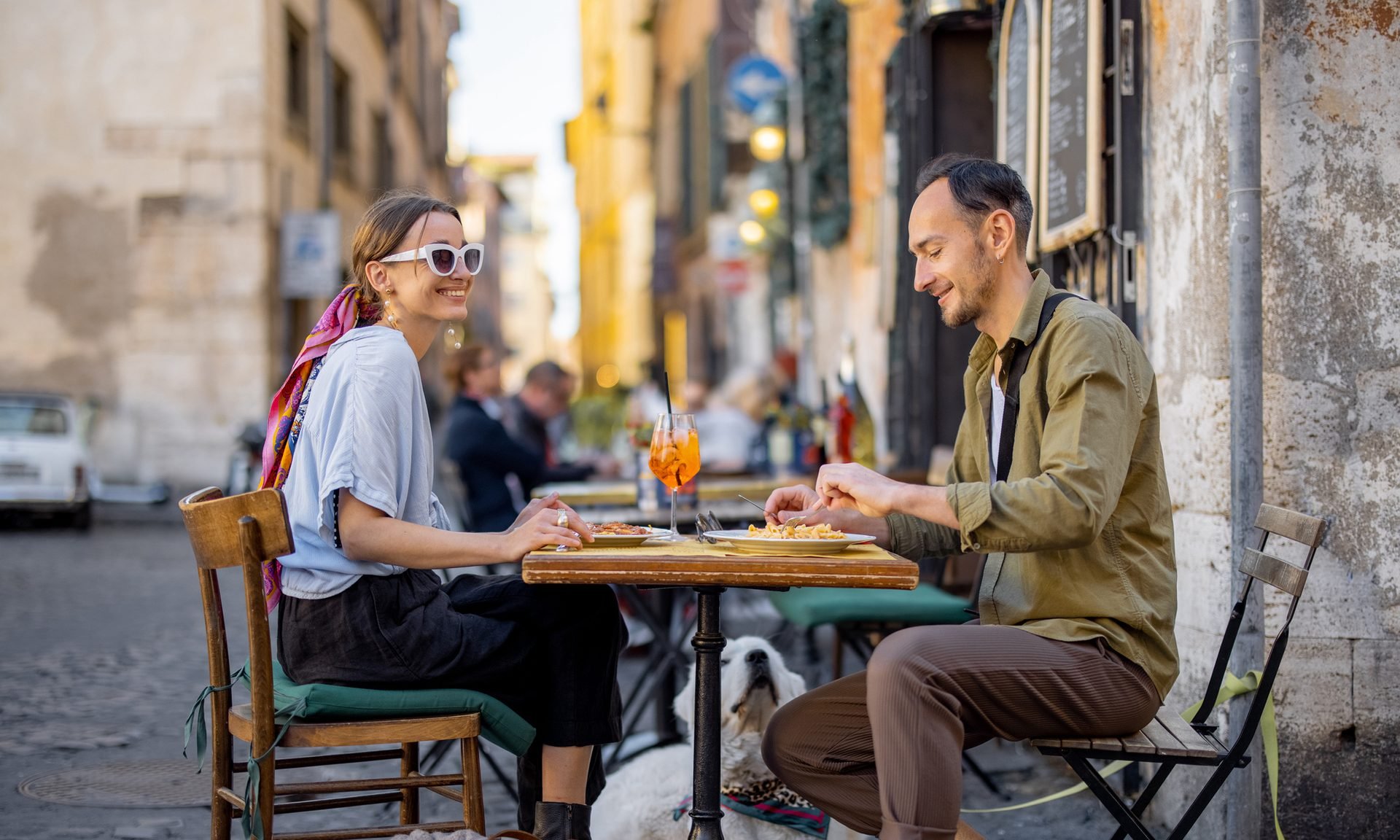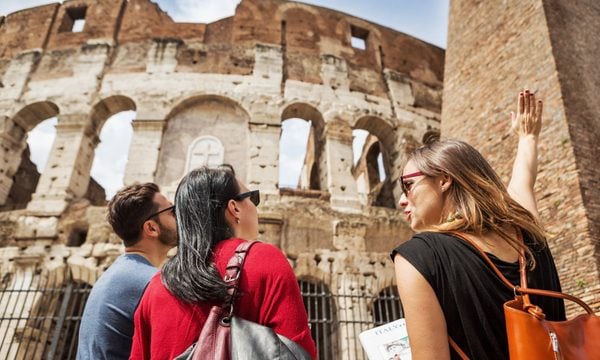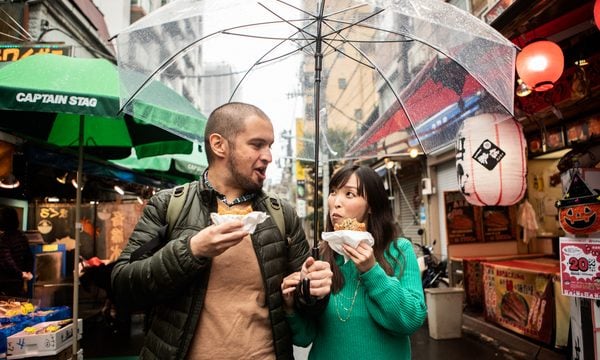Tipping in Italy: When You Should and Shouldn’t
There's no cultural expectation to tip waitstaff or cab drivers in Italy, but tipping tour guides is customary.

Many or all of the products on this page are from partners who compensate us when you click to or take an action on their website, but this does not influence our evaluations or ratings. Our opinions are our own.
Italy has given us pizza, Aperol spritz, the Colosseum, Vespa scooters and Michelangelo, so it’s no wonder people visit the boot-shaped country in droves.
When calculating your budget for a vacation, you might be wondering how much to tip in Italy. Fortunately for travelers, you won’t need to tip much.
When in Rome, you can say “buongiorno” to finger-licking food and “arrivederci” to the tipping culture that we’re so accustomed to in the U.S.
» Learn more: The best travel credit cards right now
Do you tip in Italy?
Let’s get it straight. Tipping in Italy isn’t compulsory nor is it expected. Italian workers are paid a salary and don’t rely on gratuities to survive, as they do in the U.S.
However, if you feel that excellent service has been provided and you’d like to thank your server with a monetary gift, you can do so, but the amount you leave doesn’t have to be high.
If you insist on tipping, let’s discuss how much to tip in Italy in various situations.
Tipping in Italian restaurants
Let’s say your travel companion and you split a perfectly cooked Margherita pizza, a delicious spaghetti Bolognese and wash it all down with a bottle of a nice Chianti at a sit-down restaurant.
You’re ready to keep walking the charming streets of whatever Italian city you’re in, but one thing stops you in your tracks. The bill comes out, and you’re not sure how much to tip.
The rule of thumb is to round up to the nearest increment of five — e.g. rounding up to €30 on a €27 bill — and leave a few euros on top of the total amount. If you pay with a card, leaving a few coins is enough.
At some restaurants, you might notice something called a "coperto" (cover charge) on the bill. It’s the fixed amount that you’re charged (usually no more than €5, or around $5.50) for a tablecloth, silverware and a bread basket that often comes out at Italian restaurants.
The cover charge gets added to the check on a per-person basis. Keep in mind that this fee goes to the restaurant and not the waitstaff.
If you see a coperto charge on your bill, there’s no need to cause a scene even if you didn’t eat the “free” bread. Expect it when budgeting for a meal at a sit-down establishment.
» Learn more: The best travel insurance companies
Tipping in Italian coffee shops or bars
If you order a beverage at a coffee shop or a bar in Italy, you could leave your barista or a bartender extra change from the bill.
However, it’s not customary to tip more, and nobody at the counter is going to flip an iPad at you awkwardly, asking for a 15%, 20% or 25% tip.
Tipping at Italian hotels
If you’re staying at a hotel and want to acknowledge housekeeping for tidying up your room and changing your towels, you can leave €1 euro ($1.10) per night of your stay. And if you’ve packed lots of outfits and a kitchen sink in your luggage, then a euro per bag is appropriate for a porter who delivers your bags to the room.
Tipping taxi drivers in Italy
Do you tip taxi drivers in Italy? Again, you don’t have to, but if you feel compelled to leave something, tell the driver to keep the change.
For example, if your ride was €18 euros (roughly $19.80), handing them €20 before you hop out of the cab is fine.
Tipping tour guides in Italy
Tipping your tour guide is probably the only exception to tipping rules in Italy. Whether it’s a paid excursion or a free tour, you should tip your guide.
We recommend adding a gratuity of €5 ($5.50) per person for a half-day tour and €10 ($11) per person for a full-day tour. As always, if you absolutely loved the excursion and the information provided, feel free to tip more at the end.
The bottom line
As mentioned above, waitstaff in Italy get paid a living wage and there’s no cultural expectation of tipping. However, if you’re so inclined to leave a little thank you for a job well done, no one is going to stop you.
In fact, the cash will be appreciated. Just keep in mind that the tip doesn’t have to be a large one for you to seem grateful for the service provided.
Want more insights on travel in Italy? Tune into the Smart Travel podcast's episode entirely on Italy. Then, subscribe for more:
How to maximize your rewards
You want a travel credit card that prioritizes what’s important to you. Here are some of the best travel credit cards of 2026:
- Flexibility, point transfers and a large bonus: Chase Sapphire Preferred® Card
- No annual fee: Wells Fargo Autograph® Card
- Flat-rate travel rewards: Capital One Venture Rewards Credit Card
- Bonus travel rewards and high-end perks: Chase Sapphire Reserve®
- Luxury perks: American Express Platinum Card®
- Business travelers: Ink Business Preferred® Credit Card
Article sources
NerdWallet writers are subject matter authorities who use primary,
trustworthy sources to inform their work, including peer-reviewed
studies, government websites, academic research and interviews with
industry experts. All content is fact-checked for accuracy, timeliness
and relevance. You can learn more about NerdWallet's high
standards for journalism by reading our
editorial guidelines.
Limited Time Only: Earn $1,000 Toward Travel!
Capital One Venture Rewards Credit Card 
Travel

For a limited time, the
Capital One Venture Rewards Credit Card is offering new cardholders an especially rich bonus: Enjoy $250 to use on Capital One Travel in your first cardholder year, plus earn 75,000 bonus miles once you spend $4,000 on purchases within the first 3 months from account opening - that’s equal to $1,000 in travel!
More like this
Related articles







